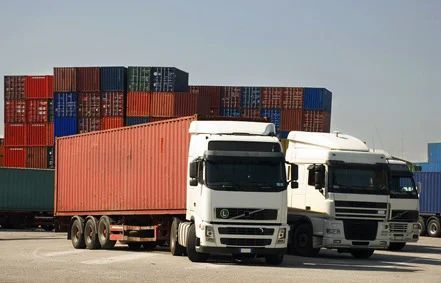Contact : +917977404495
A container vehicle service is an essential part of the logistics and transportation industry, offering the ability to move large quantities of goods safely and efficiently. These services involve the use of specialized vehicles—container trucks or trailers—designed to carry containers that can be easily loaded, transported, and unloaded without the need to directly handle the goods inside. This type of service plays a crucial role in facilitating trade, both domestically and internationally, by providing a reliable means of transporting goods across long distances.
Key Features of Container Vehicle Services
-
Versatility and Flexibility: Container vehicles are highly versatile, capable of transporting a wide range of goods, from perishable items to heavy machinery. Containers come in various sizes, with the 20-foot and 40-foot containers being the most common. This flexibility allows businesses to choose the right container size based on their specific needs, optimizing space and cost.
-
Safety and Security: One of the primary advantages of using container vehicle services is the enhanced safety and security they offer. Containers are typically made of robust materials like steel, which protect the cargo from external elements such as weather conditions and potential theft. The ability to seal containers also ensures that goods remain intact and untouched throughout the journey, reducing the risk of damage or loss.
-
Intermodal Transportation: Container vehicle services are a key component of intermodal transportation, where goods are moved using multiple modes of transport—such as ships, trains, and trucks—without the need to unload and reload the cargo at each stage. This method improves efficiency, reduces transit times, and lowers costs. Container vehicles often operate as the last-mile delivery option, picking up or delivering containers from ports, rail yards, or distribution centers.
-
Cost-Effective and Efficient: Using container vehicles is often more cost-effective than other forms of transportation, particularly for bulk goods. The standardized sizes of containers mean that they can be easily stacked and stored, maximizing space utilization. Moreover, the ability to transport large volumes in a single trip reduces the number of trips required, saving on fuel and labor costs.
-
Environmental Impact: Container vehicle services also contribute to reducing the environmental impact of transportation. By consolidating goods into fewer trips, these services help lower carbon emissions. Additionally, many modern container vehicles are designed to be fuel-efficient, further reducing their environmental footprint.
Applications of Container Vehicle Services
-
International Trade: Container vehicle services are indispensable in international trade. Containers can be loaded at the manufacturer’s facility, transported by road to a port, shipped across oceans, and then delivered to the final destination by truck or rail. This seamless process is crucial for global supply chains, ensuring that goods reach markets across the world.
-
E-commerce and Retail: The rise of e-commerce has increased the demand for container vehicle services. Retailers often import goods in bulk, which are then stored in warehouses and distributed to customers. Container vehicles play a vital role in this supply chain, moving goods from ports to distribution centers and, eventually, to the consumer.
-
Industrial and Manufacturing: Industries such as automotive, electronics, and heavy machinery rely heavily on container vehicle services to transport raw materials and finished products. These services ensure that factories receive the materials they need on time, and that products reach their intended markets without delays.
Challenges in Container Vehicle Services
Despite their many advantages, container vehicle services face challenges. Traffic congestion, particularly in urban areas, can lead to delays and increased operational costs. Additionally, regulatory issues, such as weight limits and road restrictions, can complicate logistics planning. The industry also faces pressure to adopt more sustainable practices, balancing the need for efficiency with environmental considerations.
Conclusion
Container vehicle services are a backbone of modern logistics, enabling the efficient and secure movement of goods across the globe. Their versatility, cost-effectiveness, and role in intermodal transportation make them indispensable in today’s interconnected economy. As the demand for fast, reliable, and sustainable logistics solutions continues to grow, container vehicle services will remain at the forefront, driving global trade and commerce.

